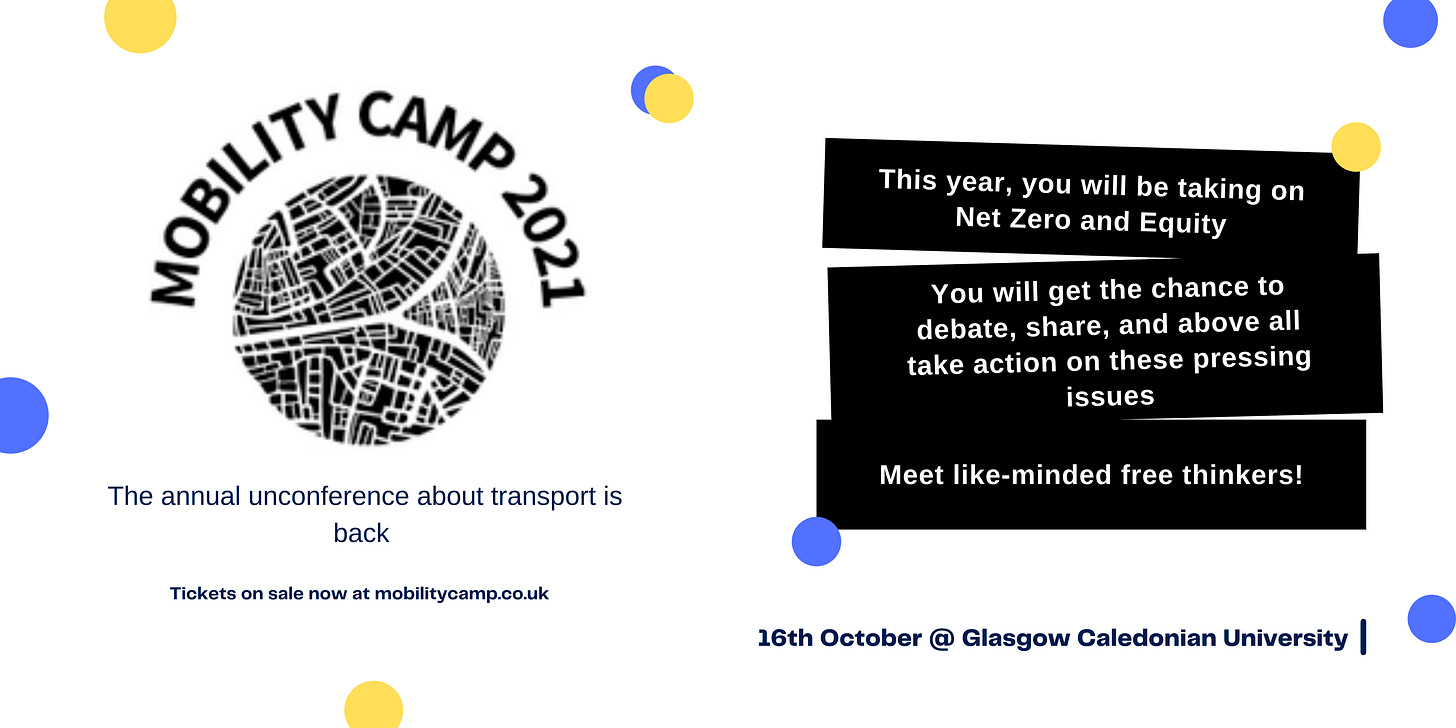Along for the Ride #125
Heya friends, happy Friday!
Depending on where in the world you are, you may be be celebrating Indigenous People’s Day soon (or perhaps recently celebrated The National Day for Truth and Reconciliation in Canada). For those of us living on traditional, ancestral and unceded indigenous territory, it’s a day to reckon with the history of colonization and it’s continued legacy and harm-felt today on indigenous and First Nations communities. Below I’m sharing some resources to help us all better understand the importance of this day—no matter what corner of the world you live in.
The importance of land acknowledgments when convening groups (YWCA Vancouver)
A map of First Nations territories so you can better understand the history of the land you occupy, it’s traditional uses and residents (Whose Land, Native Land)
Canada’s Truth and Reconciliation Report, featuring 94 Calls to Action (Government of Canada)
European colonization of North America resulted in the death of 56 million indigenous peoples (The Guardian)
Government and Policy
Remember when Vancouver was going to be the greenest city in the world?
It’s not that they didn’t try or that they didn’t get close (to some of the goals)! Vancouver achieved some major GHG reductions, but it never got to claim it was the most sustainable city in world come 2020. While in many ways the city nailed their transportation ambitions, other areas were trickier and left the strategy in peril. This deep-dive is an interesting analysis of the plan, what it got right, and where it fell short.
Birmingham plans to become one massive low traffic neighbourhood!
In more optimistic news (hopefully?) Birmingham has released expansive new plans to become a “super-sized low traffic neighbourhood”. The plan calls for pushing motor vehicles out of the city centre, building more bus and bike lanes, and in general making me swoon.
That classic trolley car problem
Every once in a while I toss in a philosophical piece about the trolley-car problem (which imho is over-indexed for AV media). So here’s the latest hot take from Vox. Probably nothing you don’t already know, but if it’s a new concept to you give it a read!
Industry
Cruise wants to bring 1 million AVs to cities by 2030
AV companies: Our mission is to revolutionize urban transportation — transportation barriers, be gone! Green house gases, be gone!
Also AV companies: We’re going to print cars with faint hope they solve your problems and make us a ludicrous amount of money! Also I know we promised this five years ago, but this time we mean it!
Cruise and Waymo get the green-light to charge for trips in CA
Cruise and Waymo can now offer paid services in California. Cruise can charge for freight services in parts of San Francisco, while Waymo can charge for passenger rides when a safety driver is present. Neither company can transport people for fares without a safety driver present.
Ocado invests $13.6M in UK AV company Wayve
Very exciting times for the London-based AV start-up that keeps racking in more money. As recently as August, Balderton Capital led a $20M Series A round. Ocado—an online grocer—is betting big on AVs for the future of its delivery program having made a similar investment in Oxbotica earlier this year.
GM and Ford working on a settlement over name dispute
Ford and GM entered into a trademark battle over the term “Cruise” a couple months ago (because what else would they argue over). Ford named its cruise control system “BlueCruise” while GM’s is called “SuperCruise” and, well, here we are. “Attorneys for the automakers said they’re working out the terms of the settlement and asked the court for a conditional dismissal. The two sides will report back within 60 days if they’re unable to come to an agreement.”
Kyte is working on AVs for car rentals, raises $30M Series A
Kyte is a car rental company that drops the car off at your door—no travel necessary. Its short term ambitions are to expand to new cities, while longer term it hopes to apply autonomous-driving technology to conduct pick-ups and drop-offs.
An interview with Waymo co-CEO Tekedra Mawakana
Ok this article is… very pro-AVs as a concept. So if you can look past the sheer glean of how perfect AVs are, there’s an interesting interview with one of Waymo’s top dogs. There is also an audio version for those of you who want to listen while you doing other things!
Research and Academia
A global analysis of car dependency
A review of 56 metro areas around the world considers what factors lead to car dependency in cities. “We found that density, public transport supply and demand, car ownership, fuel price and level of congestion are important predictors of car use. However, although these variables are significantly associated with car travel in metropolitan areas, they do explain variance to a limited extent only, partly since such variables do not cover underlying personal attributes such as age, income, attitudes, or residential self-selection.”
How do we decide if a travel time is worthwhile?
Researchers consider the more subjective matter of how people choose to move, and why. “Worthwhile travel time introduces the idea that travel can be pleasant, meaningful or worthwhile and not exclusively associated with the economic utility of the activity at the destination of the trip and the work-related productivity during the trip.”
Extra Bits and Bobs
A job you should apply for: Steer is hiring a Principal Consultant for Shared Mobility. They are a lovely team doing very interesting work with very interesting people.
An [in-person] un-conference: Friend of the newsletter James Gleave invites you to join Mobility Camp, an un-conference in Glasgow happening later this month. Tickets are £5 and include food and refreshments! You can sign up for James’ daily transport newsletter, Mobility Matters while you’re at :)
That’s all from me, have a beautiful weekend friends.
Sarah




